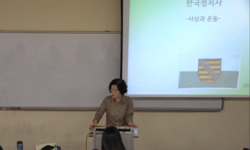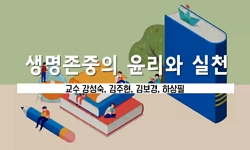유권자의 이념과 투표행위의 관계를 분석한 대다수의 기존 연구들은 유권자가 자신과 후보 사이의 이념적 거리나 방향 등을 따져서 지지후보를 결정하는‘합리적 유권자’라고 전제하고 ...
http://chineseinput.net/에서 pinyin(병음)방식으로 중국어를 변환할 수 있습니다.
변환된 중국어를 복사하여 사용하시면 됩니다.
- 中文 을 입력하시려면 zhongwen을 입력하시고 space를누르시면됩니다.
- 北京 을 입력하시려면 beijing을 입력하시고 space를 누르시면 됩니다.

합리적인 유권자인가, 합리화하는 유권자인가? = Are Voters Rational or Rationalizing? : Voters’Ideology and Candidate Choice
한글로보기https://www.riss.kr/link?id=A82384503
- 저자
- 발행기관
- 학술지명
- 권호사항
-
발행연도
2010
-
작성언어
Korean
-
주제어
유권자 ; 이념 ; 이념투표 ; 투표선택 ; 후보선택 ; 합리화 ; 투사효과 ; voter ; ideology ; ideological voting ; candidate choice ; projection effect
-
등재정보
KCI등재
-
자료형태
학술저널
- 발행기관 URL
-
수록면
45-67(23쪽)
-
KCI 피인용횟수
26
- DOI식별코드
- 제공처
- 소장기관
-
0
상세조회 -
0
다운로드
부가정보
국문 초록 (Abstract)
유권자의 이념과 투표행위의 관계를 분석한 대다수의 기존 연구들은 유권자가 자신과 후보 사이의 이념적 거리나 방향 등을 따져서 지지후보를 결정하는‘합리적 유권자’라고 전제하고 유권자들의 이념이 후보선택에 어떻게 영향을 미치는가라는 인과관계에 주목하여왔다. 본 논문의 목적은 기존의 이념투표 연구가 가정하는 인과관계의 방향과는 반대로 유권자의 후보선택이 유권자의 이념평가에 영향을 미치는 전도된 인과관계가 나타날 수 있다는 점을 17대 대선 패널데이터를 이용한 경험분석을 통해 보여주는 것이다. 이를 위해 본 논문은 이념과 후보선택 사이의 인과관계에서 이념적 근접성 때문에 특정 후보를 선택하는 것이 아니라, 선택했기 때문에 후보를 이념적으로 가깝게 여기게 되는 합리화의 과정이 작동한다는 다양한 경험적 증거들을 제시하였다. 보다 구체적으로 본 논문은 유권자들이 지지하는 후보의 이념을 자신의 주관적 이념과 가깝다고 평가하는 합리화의 과정을‘투사효과’로 제시하고 투사효과가 나타나는가를 검증하기 위해 회귀분석 모델을 제시하였으며, 17대선 패널자료를 활용하여 분석하였다. 경험적 분석의 결과, 우선 한국 유권자의 이념성향과 후보자에 대한 이념평가 사이에 투사효과가 나타난다는 점을 확인하였다. 또한 투사효과는 승자인 이명박 후보에 대해서 더 강하게 나타났고, 정동영 후보에 대해서는 정당의 이념을 통해 후보이념을 추론하는‘정당신호 효과’와‘역투사효과’가 크게 나타났다.
다국어 초록 (Multilingual Abstract)
The majority of previous studies on ideological voting assume that voters are rational and thus voters’ ideological orientations and their evaluation on candidates’ideological positions are crucial determinants for candidate choice. Thus these pre...
The majority of previous studies on ideological voting assume that voters are rational and thus voters’ ideological orientations and their evaluation on candidates’ideological positions are crucial determinants for candidate choice. Thus these previous studies mainly examine how ideological distance and direction between voters and candidates affect candidate choice. The main aim of this paper is to demonstrate that casual direction between voters’ ideology and their candidate choice can be reversed and voters’ ideological self-identification is not a cause but an outcome of rationalizing their voting choice. More specifically, this paper tries to examine the “projection effect”, which is defined as voters’ psychological process of perceiving preferred candidate’s ideological position closer to their own ideological orientations, by analysing the panel data on the 17th Presidential election. From various empirical analysis, we confirmed the clear projection effect among Korean voters. The projection effect was found to be more strong regarding Lee Myung-bak, while ‘partisan cue effect’ and ‘reverse projection effect’was found only regarding Chung Dong-young.
목차 (Table of Contents)
- 논문요약
- Ⅰ. 서론
- Ⅱ. 이론적 논의: 유권자는 합리적인가, 아니면 합리화하는가?
- Ⅲ. 한국 유권자의 이념성향
- Ⅳ. 유권자의 이념과 후보선택에 대한 탐색적 경험분석
- 논문요약
- Ⅰ. 서론
- Ⅱ. 이론적 논의: 유권자는 합리적인가, 아니면 합리화하는가?
- Ⅲ. 한국 유권자의 이념성향
- Ⅳ. 유권자의 이념과 후보선택에 대한 탐색적 경험분석
- Ⅴ. 투사효과의 분석모델 및 결과
- Ⅵ. 결론
- 〈참고문헌〉
참고문헌 (Reference)
1 김무경, "한국인의 이념정향과 갈등" 사회과학연구소 13 (13): 6-31, 2005
2 이내영, "한국의 이념갈등과 이념지형의 변화" 2009
3 이내영, "한국 유권자의 이념성향의 변화와 이념투표" 평화와 민주주의연구소 17 (17): 42-72, 2009
4 이현출, "한국 국민의 이념성향: 특성과 변화" 한국정치학회 39 (39): 321-343, 2005
5 이현지, "정치적 이념의 형성과 가치변화: 16대 대선에 나타난‘비동시성의 동시성’의 문제를 중심으로" (7) : 2003
6 최장집, "민주화 이후의 민주주의" 후마니타스 2002
7 Krosnick, Jon A., "The Role of Attitude Importance in Social Evaluation: A Study of Policy Preferences, Presidential Candidate Evaluations and Voting Behavior" 55 (55): 1988
8 Converse, Philip E., "The Nature of Belief Systems in Mass Publics, Ideology and Its Discontents" The Free Press of Glencoe 1964
9 Nie, Norman H., "The Changing American Voter" Harvard University Press 1979
10 Campbell, Angus, "The American Voter" Wiley 1960
1 김무경, "한국인의 이념정향과 갈등" 사회과학연구소 13 (13): 6-31, 2005
2 이내영, "한국의 이념갈등과 이념지형의 변화" 2009
3 이내영, "한국 유권자의 이념성향의 변화와 이념투표" 평화와 민주주의연구소 17 (17): 42-72, 2009
4 이현출, "한국 국민의 이념성향: 특성과 변화" 한국정치학회 39 (39): 321-343, 2005
5 이현지, "정치적 이념의 형성과 가치변화: 16대 대선에 나타난‘비동시성의 동시성’의 문제를 중심으로" (7) : 2003
6 최장집, "민주화 이후의 민주주의" 후마니타스 2002
7 Krosnick, Jon A., "The Role of Attitude Importance in Social Evaluation: A Study of Policy Preferences, Presidential Candidate Evaluations and Voting Behavior" 55 (55): 1988
8 Converse, Philip E., "The Nature of Belief Systems in Mass Publics, Ideology and Its Discontents" The Free Press of Glencoe 1964
9 Nie, Norman H., "The Changing American Voter" Harvard University Press 1979
10 Campbell, Angus, "The American Voter" Wiley 1960
11 Rahn, Wendy M., "Rationalization and Derivation Processes in Survey Studies of Political Candidate Evaluation" 38 (38): 1994
12 Martinez, Michael D., "Political Involvement and the Projection Process" 10 (10): 1988
13 Page, Benjamin I., "Policy Voting and the Electoral Process: The Vietnam War Issue" 66 (66): 1972
14 Cohen, Jacob, "Partial Products Are Interactions; Partialed Powers Are Curve Component" 85 (85): 1978
15 Achen, Christopher H., "It Feels Like We’re Thinking: The Rationalizing Voter and Electoral Democracy" 2006
16 Alvarez, Michael R., "Hard Choices, Easy Answers: Values, Information, and American Public Opinion" Princeton University Press 2002
17 Markus, Gregory B., "Dynamic Simultaneous Equation Model of Electoral Choice" 73 (73): 1979
18 Brody, Richard A., "Comment: The Assessment of Policy Voting" 66 (66): 1972
19 Beasley, Ryan K., "Cognitive Dissonance and Post-Decision Attitude Change in Six Presidential Election" 22 (22): 2001
20 Dalton, Russell J., "Citizen Politics: Public Opinion and Political Parties in Advanced Industrial Democracies" Chatham House Publisher 1998
21 Feldman, Stanley, "Candidates, Issues and Voters: The Role of Inference in Political Perception" 45 (45): 1983
22 Howell, Susan E., "Candidates and Attitudes: Revisiting the Question of Causality" 48 (48): 1986
23 Conover, Pamela J., "Candidate Perception in and Ambiguous World: Campaigns, Cues and Inference Processes" 33 (33): 1989
24 Converse, Philip E., "Assessing the Capacity of Mass Electorates" 3 : 2000
25 Markus, Gregory B., "Analyzing Panel Data" Sage Publications 1979
26 Downs, Anthony, "An Economic Theory of Democracy" Harper Collins Publishers 1957
27 Merrill III, Samuel, "A Unified Theory of Voting: Directional and Proximity Spatial Model" Cambridge University Press 1999
28 김주찬, "2002년 대통령선거에서 이념성향이 투표에 미친 영향" 21세기정치학회 13 (13): 2003
동일학술지(권/호) 다른 논문
-
- 한국정치학회
- 신율(Yul Shin)
- 2010
- KCI등재
-
- 한국정치학회
- 양순창(Yang Soon Chang)
- 2010
- KCI등재
-
- 한국정치학회
- 배병인(Byoung-Inn Bai)
- 2010
- KCI등재
-
2010 시민매니페스토운동의 성과와 한계에 대한 탐색적 고찰
- 한국정치학회
- 조진만(Jinman Cho)
- 2010
- KCI등재
분석정보
인용정보 인용지수 설명보기
학술지 이력
| 연월일 | 이력구분 | 이력상세 | 등재구분 |
|---|---|---|---|
| 2020 | 평가예정 | 계속평가 신청대상 (등재유지) | |
| 2015-01-01 | 평가 | 우수등재학술지 선정 (계속평가) | |
| 2011-01-01 | 평가 | 등재학술지 유지 (등재유지) |  |
| 2009-01-01 | 평가 | 등재학술지 유지 (등재유지) |  |
| 2007-01-01 | 평가 | 등재학술지 유지 (등재유지) |  |
| 2005-01-01 | 평가 | 등재학술지 유지 (등재유지) |  |
| 2002-01-01 | 평가 | 등재학술지 선정 (등재후보2차) |  |
| 1999-07-01 | 평가 | 등재후보학술지 선정 (신규평가) |  |
학술지 인용정보
| 기준연도 | WOS-KCI 통합IF(2년) | KCIF(2년) | KCIF(3년) |
|---|---|---|---|
| 2016 | 0.98 | 0.98 | 1.06 |
| KCIF(4년) | KCIF(5년) | 중심성지수(3년) | 즉시성지수 |
| 1.08 | 1.03 | 1.653 | 0.27 |




 ScienceON
ScienceON DBpia
DBpia







